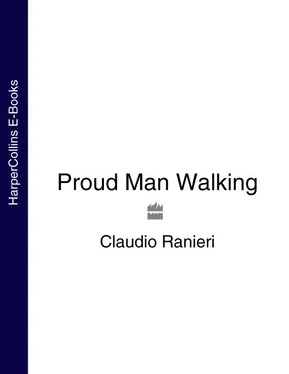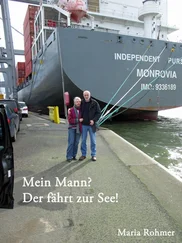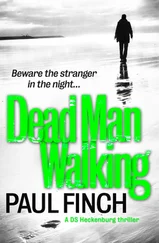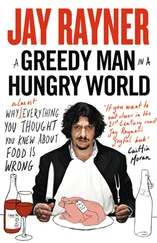It was too late to change things. Although Gianfranco had not yet put pen to paper, he had given his word, and for him that was as good as a signature. About a month later, Cellino was a studio guest on ‘Domenica Sportiva’, a Sunday sports programme on RAI (the Italian state television), and I was speaking on a link from my country home in the Sienese hills of Tuscany. It was then that I learned all about the backstage activity that had accompanied Zola’s signing. Cellino admitted that, having got wind of the extraordinary events happening at Stamford Bridge, he feared he could be in danger of losing Zola even before he had landed him. For Cellino and for all Sardinia, this meant much more than simply acquiring a great player. Zola was a national symbol, a returning hero. He summoned Gianfranco to the club and proceeded to have all mobile phones and fax machines switched off. Once he had secured the player’s signature, he admitted to the ‘manoeuvres’ and offered his apologies. Zola simply smiled, put his hand in his pocket and pulled out a fax he had just received from Chelsea, making him an offer hard to refuse. But, torn as he was between two great loves, he had already given his word. So yet again he had shown fantastic character, although it meant I was losing an exceptional person (quite apart from losing a footballer whose worth everyone knows). I probably never told him as much directly, but I was always genuinely proud to travel the world as Chelsea manager with a standard-bearer like Gianfranco. On the pitch, he enchanted and he scored sublime goals, but he was also our ambassador, our calling card, and an example on and off the field.
A few days layer, on 8 July, I was called into the office. I was to meet Mr Abramovich for the first time and I did not know what to expect. We met in the boardroom at Stamford Bridge. I went up alone in the lift but I was perfectly relaxed, even on this day that was going to change my life, although who could say in what direction? The Chelsea boardroom has no windows, but there is a certain light that emanates from the history in the pictures of the stadium that hang on the wall, showing how the place has evolved over the years. And we who wear the Chelsea jersey, in whatever capacity, are the ones who must keep the story going. It was precisely for this that we were meeting in that room.
Those present were Mr Abramovich with three close associates, me, and Trevor Birch. Instinctively, I spoke up first because I felt I had to make a clear statement concerning my own situation. I said that I had been around long enough in the world of football to realize that a change of ownership might mean a change in approach, or different objectives, and the direct consequence can be the decision to replace the coach. I would not have been upset; in fact I must admit I had already mentioned on the phone to a friend holidaying in Miami that, although I hoped otherwise, I sensed that my time as manager of Chelsea might even be over already.
‘Tell me straight away,’ I insisted, ‘or else you risk wasting your time and money, and I could be wasting time as well.’ Calmly and with the greatest sincerity, I had presented him with an opening, a perfect assist, to end my contract painlessly. No answer. Instead, he began to ask for my opinions on the team, and I saw immediately that he was fully informed as to how we were placed. For my part, I pointed out that even in our financial circumstances, we had already come a long way without buying players. What we had was an optimum basis for a team, but it needed strengthening. With the conversation now moving along more freely, he told me that he had seen the Champions League match between Manchester United and Real Madrid, and while watching it he had got to like the game of football so much that he had decided to buy a team. He admitted he had chosen Chelsea not because he was a supporter (at least not at the time, though he has since become a genuine fan, well beyond any level his business interests might warrant), but because when considering the list of clubs he could have purchased, ours presented the most favourable package. First and foremost, there was our history and the attraction of Champions League competition. I must confess, at this moment I suddenly thought about that goal of Gronkjaer’s, a gratifying snapshot passing through my mind.
‘What do you think this team needs to be able to step up a level?’ he asked, perhaps simply to confirm what he was already thinking.
‘Well,’ I answered, ‘considering that this is Chelsea and we have to contest the Premiership, the Champions League and two national Cup competitions, and try to win them all, I need two players to cover every position. If ambitions are going to be raised, we can’t have a repeat of all the troubles we endured last year, when we started off brilliantly but then, what with injuries and bans, our prospects changed so drastically.’
I spoke on impulse, saying what I thought would be best for the club. He then looked at me, and stressed that he wanted to turn Chelsea into one of the top clubs in Europe – like Juventus, Real Madrid or AC Milan – adding also that he fully agreed with me on the need to have two top-class players for every position. At this point it was inevitable I would ask the question again.
‘Tell me now,’ I repeated, inviting a statement on the coaching position, ‘or you risk wasting your time and money, and I could be wasting my time too.’ I was happy where I was and I wanted to finish the job, but in these situations, things needed to be made clear.
‘No,’ he said firmly, ‘I want you to go on managing the team.’
For me, that simple declaration was enough. As of that moment it was possible to start working for the future. I told him I wanted young players who would show promise as future championship-winning material and who could also be mixed in with experienced players, because I wanted a Chelsea that would be capable of winning things right away, but also equipped to stay at the top level over time. The names I mentioned immediately afterwards also gave clear notice of another aspect I considered fundamental. Above all, I wanted players from the home nations capable of giving a heart, soul and spirit to the squad that would be essentially English in nature. I believed strongly in this. The backbone of a team should reflect the characteristics of the championship it plays in. Equally clear, and demonstrated by the arrival of Hernan Crespo, Adrian Mutu and Claude Makelele, was the importance of including star players from abroad – vital for making the step up in quality – but there should always be a strong local contingent, not least because the fans can identify with them more easily. After all, Manchester United and Alex Ferguson did this very same thing in the 1990s, though with a slight difference. What they did well was to bring up star performers through their own development structure – home-grown talent like Beckham, Scholes, Gary Neville, Giggs and Brown – and bring in players such as Kanchelskis, Stam, and, most recently, Van Nistelrooy from abroad to create a winning formula.
From that day onwards throughout the entire duration of the transfer window, I was in daily contact with Mr Abramovich by telephone, directly or through his associates, and the results were there for all to see. I have to say that we landed almost all the players we dreamed of signing. When making plans with an owner like this, everything is certainly much easier. It was a real novelty for me when considering all the chairmen I had worked under previously in Italy and Spain. While no less passionate, it must be said that none of these had shown the same readiness to back up my technical wishes with actions. Let’s just say that in the past, the players taken from me and sold always outnumbered the players who were bought for me.
Читать дальше












